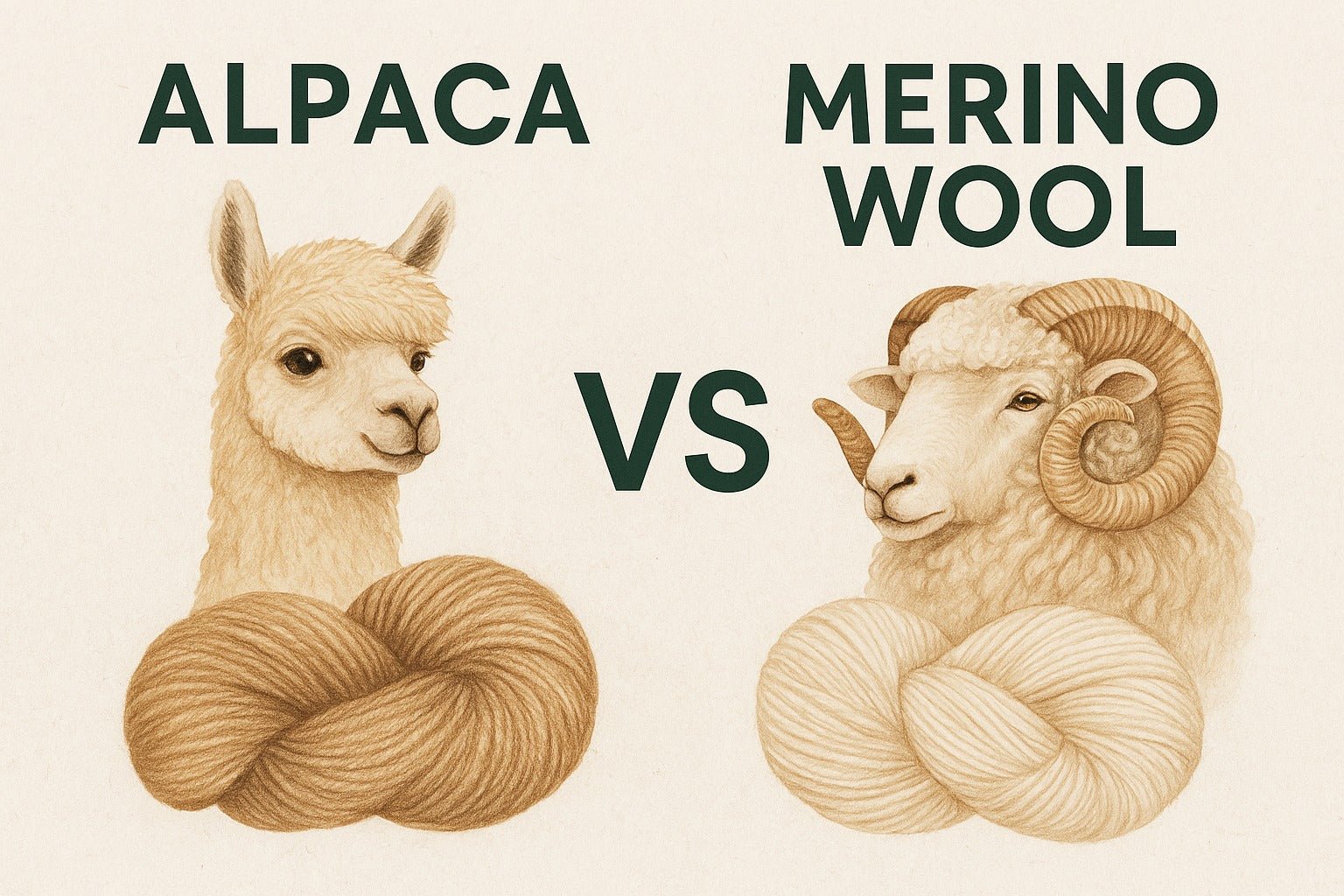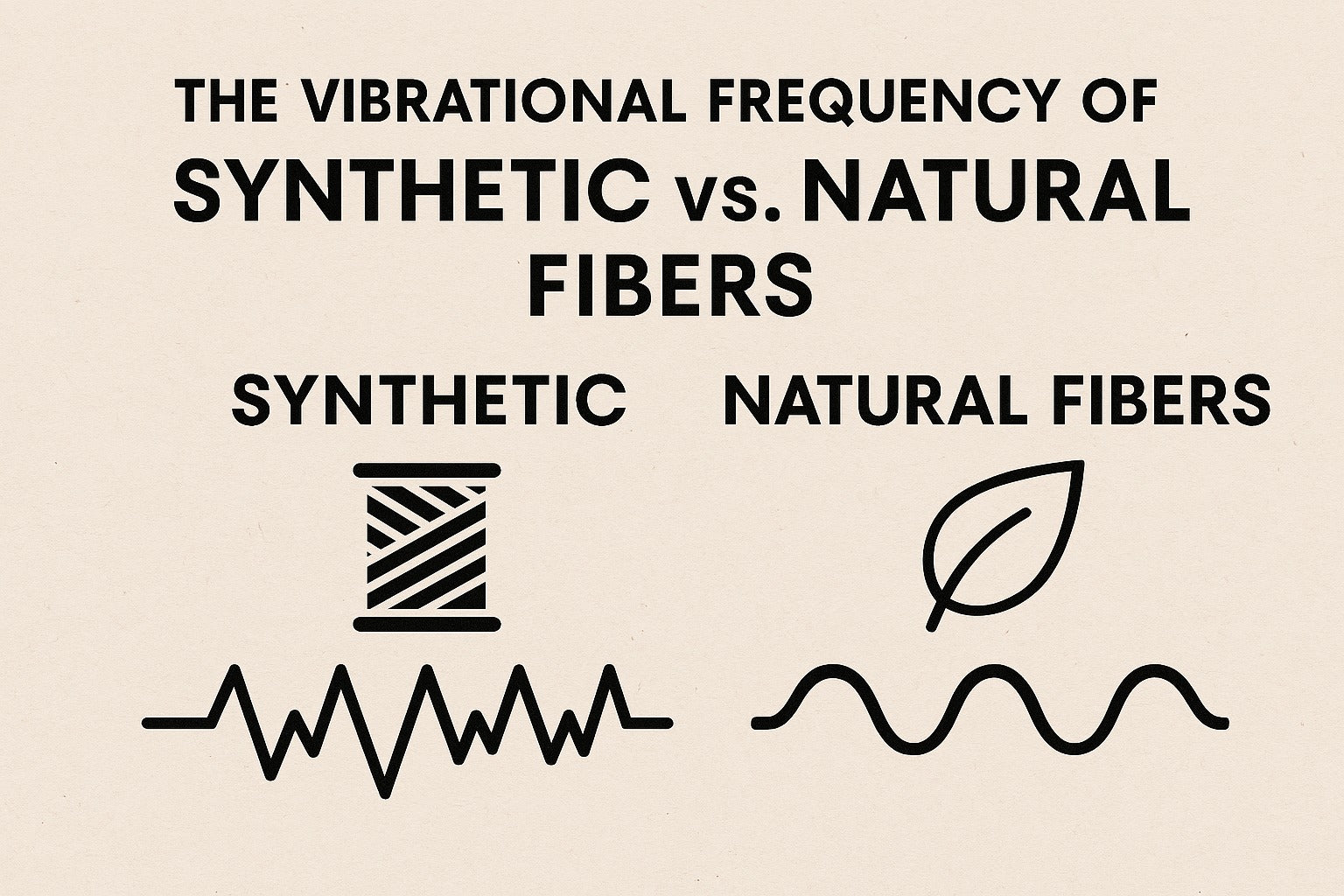When it comes to choosing the perfect yarn for your knitting or crocheting projects, two fibers often stand out: alpaca and merino wool. Both are prized for their luxurious qualities, but they offer different benefits and characteristics. In this blog post, we'll explore the differences between alpaca and merino wool, helping you make an informed decision for your next project.
Origins and Characteristics
Alpaca Wool
Source: Alpaca wool is derived from the fleece of alpacas, which are native to the high-altitude regions of South America, particularly Peru, Bolivia, and Chile.
Texture: Alpaca fibers are exceptionally soft and silky, often compared to cashmere. The fiber structure is smooth and lacks the scales found in sheep's wool, giving it a silky feel.
Warmth: Alpaca wool is known for its superior warmth. The fibers have a hollow core, which provides excellent insulation, trapping body heat and keeping you warm in cold weather.
Hypoallergenic: Alpaca wool is hypoallergenic because it doesn't contain lanolin, a substance found in sheep's wool that can cause allergic reactions. This makes it suitable for people with sensitive skin or wool allergies.
Durability: Alpaca fibers are strong and resilient, making alpaca wool highly durable. It is less prone to pilling and can maintain its appearance over time.
Merino Wool
Source: Merino wool comes from Merino sheep, originally from Spain but now also raised in countries like Australia and New Zealand.
Texture: Merino wool is renowned for its softness, with fine fibers that are gentle against the skin. It has a crimped structure, which gives the yarn elasticity and bounce.
Warmth: Merino wool provides excellent warmth while remaining lightweight. It has moisture-wicking properties, keeping you dry and comfortable by absorbing moisture and releasing it into the air.
Breathability: One of the standout features of merino wool is its breathability. It can regulate temperature, keeping you warm in cold weather and cool in warmer conditions.
Elasticity: The natural elasticity of merino wool makes it ideal for garments that need to retain their shape, such as socks, hats, and fitted sweaters.
Comparing Alpaca and Merino Wool
Softness and Comfort
Alpaca Wool: Alpaca wool is incredibly soft and luxurious, often preferred for garments worn close to the skin, such as scarves, shawls, and baby items. Its smooth fibers make it comfortable for people with sensitive skin.
Merino Wool: Merino wool is also exceptionally soft, but its slight crimp provides a different texture compared to alpaca. It is suitable for a wide range of garments, offering comfort and a cozy feel.
Warmth and Insulation
Alpaca Wool: Alpaca wool is one of the warmest natural fibers, providing excellent insulation without being heavy. Its hollow fibers trap body heat, making it ideal for cold climates.
Merino Wool: Merino wool offers great warmth while being lightweight. Its moisture-wicking and breathability make it versatile for different weather conditions, keeping you comfortable in both cold and mild temperatures.
Durability and Maintenance
Alpaca Wool: Alpaca fibers are strong and durable, less likely to pill or stretch out of shape. However, due to their smooth structure, they can be more slippery and might require careful handling during knitting or crocheting.
Merino Wool: Merino wool is durable and elastic, making it resistant to wear and tear. Its natural crimp helps maintain the shape of garments. It can be easier to work with compared to alpaca wool, especially for beginners.
Hypoallergenic Properties
Alpaca Wool: Being lanolin-free, alpaca wool is hypoallergenic and suitable for those with wool allergies or sensitive skin. Its smooth fibers reduce the risk of irritation.
Merino Wool: Merino wool contains lanolin, which can cause allergies in some individuals. However, high-quality merino wool is often processed to reduce lanolin content, making it more skin-friendly.
Sustainability and Ethical Considerations
Alpaca Wool: Alpacas have a low environmental impact. They are gentle grazers, which helps prevent overgrazing and soil erosion. Alpaca wool is a sustainable choice, particularly when sourced from ethical and eco-friendly farms.
Merino Wool: The sustainability of merino wool depends on farming practices. Some Merino sheep farms focus on ethical treatment and environmental sustainability. When purchasing merino wool, look for certifications and sources that prioritize animal welfare and eco-friendly practices.
Conclusion: Which Should You Choose?
The choice between alpaca and merino wool ultimately depends on your specific needs and preferences:
- For Ultimate Softness and Warmth: Choose alpaca wool for its luxurious feel and superior insulation. It’s perfect for cozy winter garments and accessories.
- For Versatility and Breathability: Opt for merino wool, which offers a balance of warmth, moisture-wicking, and elasticity. It’s ideal for a wide range of projects, from lightweight sweaters to socks.
Both alpaca and merino wool are exceptional fibers, each with its own unique qualities. By understanding their differences, you can select the best yarn for your next knitting or crocheting project, ensuring comfort, durability, and satisfaction. Happy crafting!



